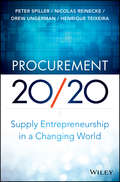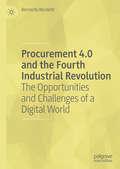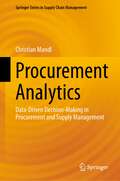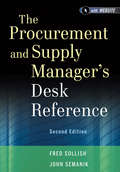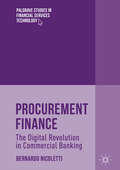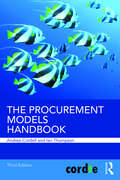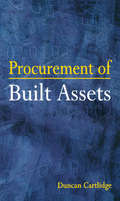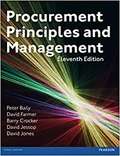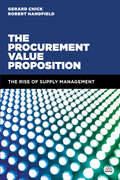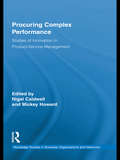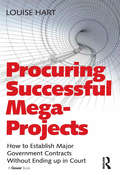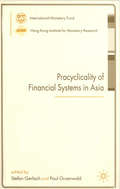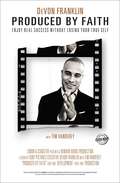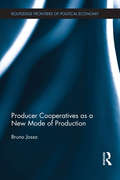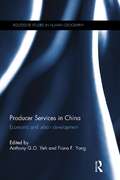- Table View
- List View
Procter & Gamble Italy: The Pringles Launch (A)
by Roy D. ShapiroProcter & Gamble's (P&G) Pringles potato chips have been a very successful brand. This case reviews the development and first launch in the United States, then in markets around the world. Italy is one of the last countries where Pringles will be launched. Should P&G Italy employ the successful launch strategy used throughout Europe or devise its own?
Procter & Gamble Japan (A)
by Michael Y. Yoshino Paul H. StonehamTen years after entering Japan, P&G had accumulated over $250 million in operating losses on declining annual sales of $120 million by 1983. The decision facing the president of P&G International: exit, retrench or rebuild the operation? Ironically, the initial entry was a success story with P&G Japan achieving an operating breakeven in their fifth year and market leadership in a number of categories. However, in the late 1970's market share and profit in all categories declined disastrously. Management changes failed to reverse the trends until an objective examination of the entry strategy, approach to the Japanese consumer, competition, technology and internal organization were made. By 1983, accelerating losses forced P&G to decide whether to exit or stay.
Procter & Gamble: Organization 2005 (B)
by Alessandro L. Spadini Mikolaj Jan PiskorskiAn abstract is not available for this product.
Procurement 20/20: Supply Entrepreneurship in a Changing World
by Peter Spiller Nicolas Reinecke Drew Ungerman Henrique TeixeiraHow to achieve procurement excellence today and evolve to be ready for tomorrow Procurement entrepreneurship pays. High-performing procurement teams can deliver huge value to their companies—regardless of industry. The best companies are advancing talent-management strategies into the heart of their procurement organizations with huge success. In addition to an estimated $84 billion in yearly cost savings, companies who give procurement leaders prominence deliver superior returns from their operations as well as lower their costs of goods sold. This book, written by a group of purchasing and supply management practice experts, shares the hard-earned insights of more than ten years of dedicated procurement research conducted with leading academic institutions and practical experience with marquee clients in the field of procurement. It is also a natural successor to the many articles McKinsey & Company has published on the topic. This reliable resource skillfully explains and codifies the best practices that leading companies have pioneered in procurement as well as frames how procurement must evolve to grapple with new global, social, and economic issues affecting business over the next decade. Details the four key dimensions of procurement excellence Showcases the five megatrends that will change the way business is done in the next decade Provides strategies that business leaders can adopt in the face of these megatrends, together with practical advice about next steps and case examples The road ahead will require you to redefine your vision for procurement and implement the required changes. Procurement 20/20 will show you how.
Procurement 4.0 and the Fourth Industrial Revolution: The Opportunities and Challenges of a Digital World
by Bernardo NicolettiWe are living in the middle of a Fourth Industrial Revolution, with new technology leading to dramatic shifts in everything from manufacturing to supply chain logistics. In a lively, developing field of academic, procurement is often neglected. Despite this, procurement plays a vital role, connecting the organization with its ecosystem. At a time of change and economic crisis, a new business model is called for, which this book aims to define. Based on the applications of Industry 4.0 concepts to procurement, this book describes Procurement 4.0 as a method and a set of tools, helping businesses to improve the value of their products, reduce waste, become more flexible, and address the business needs of the future. It will appeal to academics in the area, as well as practitioners.
Procurement Analytics: Data-Driven Decision-Making in Procurement and Supply Management (Springer Series in Supply Chain Management #22)
by Christian MandlThis unique textbook explicitly addresses the intersection of advanced analytics and procurement. It is motivated by one core question: How can firms generate (economic) value from procurement data? It demonstrates that procurement is one of the major functions within a firm where data analytics, artificial intelligence, and operations research can successfully be leveraged to reduce cost and risk and to achieve resilience and sustainability goals.The book provides a methods-based overview of data-driven optimization of purchasing decisions. Besides presenting key concepts and applications, it particularly focuses on implementation, so as to help (future) procurement managers and data scientists quickly evaluate the value generated by a given data-driven solution. What sets this textbook apart is its combination of rigorous, state-of-the-art methodologies from academic research and first-hand experience from various application-oriented consulting projects in a range of industries. Though primarily intended for graduate students with a major in procurement and supply chain management, the book will also benefit purchasing managers with and without specific knowledge of advanced analytics techniques, and data scientists with and without specific experience in procurement.
The Procurement and Supply Manager's Desk Reference
by John Semanik Fred SollishEvery supply manager's essential desktop tool with in-depth, authoritative coverage of each topicLeaving no stone unturned in covering all aspects of the procurement and sourcing functions, The Procurement and Supply Manager's Desk Reference, Second Edition is filled with everything every organization needs to know about the key roles and responsibilities of a procurement professional. Presented logically to match the flow of the procurement and sourcing functions, the book is filled with practical aids such as step-by-step guides to each segment of the process, as well as checklists and customizable forms. The new edition of this essential book provides an easy-to-use road map for the procurement and supply manager in the new millennium.Coverage on how to select suppliers and measure performanceReveals the easiest way to drive continuous improvement in the supply baseFeatures tips on providing value to the organizationHelps you identify those strategies that will work best for your business for years to comeWritten for the worldwide profession of procurement and supply management, The Procurement and Supply Manager's Desk Reference, Second Edition offers detailed coverage and tips with an eye toward incorporating proactive strategies and best practices.
Procurement at Betapharm Corp. (A)
by Susan Kulp Taylor RandallPresents a move by Betapharm to centralize procurement and e-sourcing and the many control and incentive issues that arose subsequently.
Procurement Finance: The Digital Revolution in Commercial Banking (Palgrave Studies in Financial Services Technology)
by Bernardo NicolettiThis book presents a business model on how to structure the relationship between financial services and procurement. The need for new models is particularly important to support small and medium enterprises (SMEs) where there is an evident difficulty in accessing credit. Due to this context, innovative solutions must be introduced.The objective of this book is to determine how innovation can support the dynamic and volatile international context and the increasingly relevant function of procurement. It is becoming more and more important to take into account complex international transactions with notably long payment terms. Organizations need to manage the best way to handle the financial relationships and the risks related to credit provision and payments. This book presents an end-to-end support to procurement, including trade finance, supply chain finance, and related payments.In addition, the enterprises need to keep sufficient liquidity levels in the short and medium term. This is a constant challenge today, with the turbulence of financial markets and a continuing climate of economic uncertainty making it harder to obtain external funding. Businesses need to optimize the working capital. This can be done through the innovative concept of procurement finance, which allows SMEs to benefit by the new vision of collaborative procurement. This book provides several practical examples of advanced procurement finance solutions. It demonstrates how the use of process improvement and technology can help in overcoming the current financially difficult situation. In addition, based on the business model presented, the integrated approach to procurement finance allows sustainable solutions which will be of interest to academics, researchers, managers, and practitioners in both buyer and vendor companies, as well as in banks and other financial institutions.
The Procurement Models Handbook
by Andrea Cordell Ian ThompsonBuilding from the previous two successful editions, The Procurement Models Handbook is an essential resource for everyone working in the procurement profession, including those selling directly to it. The authors provide the reader with a useful guide to the business models most frequently applied in the procurement and supply chain arena. Procurement and supply chain management are two of the highest contributors to corporate success in the modern world. This third edition is a new revised international version with additional tools that reflect the value of procurement in our globally-connected world. The authors have included over 50 well-established strategic and operational models that have a proven track record of delivering value over years of practice. Each model is presented pictorially, with explanatory commentary on its practical application to support. These models are designed to save unnecessary cost and deliver significant benefits for their user and have been carefully selected by the authors based on their originality and usefulness for practical application in the context of procurement and the supply chain. The Procurement Models Handbook is an invaluable and enduring source of reference for practitioners and business managers, as well as an essential learning support for business and procurement students.
Procurement of Built Assets
by Duncan CartlidgeThe ability to successfully procure built assets is at the heart of the construction process and in turn at the heart of the procurement process is identifying the constantly evolving needs of the construction client. Despite client criticism and a mountain of reports and statistics, spanning both the public and private sectors, until now the construction industry has failed to transform the diverse and often separate and inefficient processes of design and procurement of built assets into one single integrated production process. There are now signs however that the construction industry is beginning to transform its approach to built asset procurement and client care.This book draws heavily on the experiences and best practice of other industries and market sectors who have, just as construction is now having to do, taken a critical look at their procurement practices and techniques and the inherent waste in many traditional systems. The text includes practice-based case studies, from both the public and private sectors, to demonstrate how new procurement approaches are delivering value for money over the life cycle of built assets.This book is recommended reading for a range of students in the field of the built environment from quantity surveyors and commercial managers to architects and an essential and comprehensive guide to all construction procurement professionals seeking to familiarise themselves with the latest approaches to procurement.
Procurement, Principles and Management
by Peter Baily David Farmer Barry Crocker David Jessop David JonesNow in its eleventh edition, Procurement Principles and Management has been essential reading for practitioners and students of purchasing and procurement for nearly 50 years. This new edition will provide the reader with a reflection of mainstream practice alongside insight into developing ideas and approaches. This book has been updated to cover the continuous change and development in the field of purchasing, and carefully balances emerging philosophies with proven and established thinking and practice in the profession.
The Procurement Value Proposition
by Gerard Chick Robert HandfieldThe aim of The Procurement Value Proposition is to contemplate the value proposition to the business of contemporary Procurement and Supply Management. Business organisations are going through rapid external and internal organisational changes due to an increased focus on sustainability and corporate responsibility, technological advances, geo-political and macro-economic change and demographic shifts. Value and what it means is the key purchasing and supply chain management challenge the authors seek to address in this book. If purchasing and supply chain managers are to embrace this challenge they have to change the ways they operate. This requires new ways of thinking about supply structures and processes and new skills and competencies. Consideration has been given to geographical contexts and differences highlighted between the US, the UK and China. With input, observations and case studies from CPOs, Commercial Directors and other Procurement and business leaders, this is an invaluable book which fills a gap beyond MCIPS, the generally accepted entry level of professional procurement. It will appeal to new high fliers in procurement organisations, both practitioners and consultants who wish to develop future practice and students studying MScs on Procurement.
The Procurement Value Proposition: The Rise of Supply Management
by Gerard Chick Robert HandfieldWINNER: ACA-Bruel 2015 - Grand PrixBusinesses are going through rapid change due to an increased focus on sustainability and corporate responsibility, technological advances, geo-political and macro-economic change, and demographic shifts. If purchasing and supply chain managers are to embrace these challenges they must develop new ways of thinking about supply structures and processes as well as new skills and competencies. The Procurement Value Proposition examines these important changes that will have a profound effect on the way future procurement is carried out. It considers the implications of global economic transformation for procurement set against: changes in business contexts, purchasing strategies, organisational structure, roles and responsibilities, system development and skills required to work in the profession. This book discusses the value proposition offered by contemporary procurement to the sustainability and development of business. They examine how organizations that position procurement as a core business function will be able to drive a more competitive lever for change, and more readily adapt to the forces driving rapid change in the current global environment. The Procurement Value Proposition features case studies of companies that are moving through procurement transformation in a continual phase of movement and adaption to the multitude of shifts that are occurring. It features input, observations and case studies from CPO's, Commercial Directors and other Procurement and business leaders. The book considers a variety of geographical contexts and highlights differences between the US, the UK and China. Awarded the Grand Prix ACA-Bruel for its important contributions to the research and practice in procurement and supply chain management, it has been recognized for its ambitious vision of procurement.
Procuring Complex Performance: Studies of Innovation in Product-Service Management (Routledge Studies in Business Organizations and Networks)
by Nigel CaldwellThis book examines the management of Procuring Complex Performance (PCP) in large-scale programmes that includes the downstream support phase in sectors such as construction, healthcare, transport, aerospace, marine and defence. It brings together a series of edited chapters to explain why the traditional combination of linear project management and highly detailed contracts are now unsuited to the dynamics of emerging customer requirements based on performance and outcome. Working with leading business professors across the UK and Europe, Caldwell and Howard present the case for why large-scale programmes of world class organizations often represent a shifting frontier between the boundaries of public-private provision and silos of operations expertise. Adopting a procurement perspective, the authors explain how complex performance means not just coping with the dynamics of buyer-supplier relationships, but incorporates the shift from production orientation towards availability of bundled services such as maintenance and upgrade delivered over extended, often multi-decade timeframes. The strength of ‘PCP’ is its empirical case-based support for new business models based on through-life management, availability contracting and service support which challenge simplistic notions of dyadic, hierarchical relationships and transfer of risk to the supply base. This unique publication is essential reading for scholars and practitioners seeking to understand the context of innovation and supply as a coordinated and integrated approach to managing and procuring complex performance.
Procuring Successful Mega-Projects: How to Establish Major Government Contracts Without Ending up in Court
by Louise HartMega-projects descending into chaos and litigation embarrass governments all over the world, as the public sector presides over fiascos that waste billions and destroy reputations. Inquiry after Inquiry finds the damaging and costly failures of major government projects can be traced back to the contract establishment process. Procuring Successful Mega-Projects, is a mentor’s guide for project directors, providing frank, fearless, practical advice on how to set up a major government contract that won’t end up in court. It’s all there: How to develop and negotiate a contract that doesn’t contain undeliverable obligations or perverse incentives but does contain the necessary provisions for successful project management. How to navigate the pitfalls of the public sector environment, from hiring freezes and governance frameworks to the complexities of managing the relationship with the Minister. How to select and manage the lawyers and other advisers, build the adviser-client relationship and recognise that unwelcome advice may not be unhelpful. How to structure and follow a bullet-proof procurement process that is fair to bidders and delivers great outcomes. Procuring Successful Mega-Projects is essential reading, not just for the project director, but for everyone with a stake in the success of a mega-project: public sector executives; Ministers; private sector tenderers; infrastructure lenders; legal, financial and technical professional service providers; and procurement and project management professionals.
Procyclicality and Fair Value Accounting
by Alicia Novoa Jodi Scarlata Juan SoléA report from the International Monetary Fund.
Procyclicality in Central Bank Reserve Management: Evidence from the Crisis
by Jukka Pihlman Han van der HoornA report from the International Monetary Fund.
Procyclicality of Financial Systems in Asia
by Paul Gmenwald Stefan GerlachA report from the International Monetary Fund.
Prodigy Network: Democratizing Real Estate Design and Financing
by Karim R. Lakhani Greta Friar Katja HutterThis case follows Rodrigo Nino, founder and CEO of commercial real estate development company Prodigy Network, as he develops an equity-based crowdfunding model for small investors to access commercial real estate in Colombia, then tries out the model in the U.S. U.S. regulations, starting with the Securities Act of 1933, effectively barred sponsors from soliciting small investors for large commercial real estate. However, the JOBS Act of 2013 loosened U.S. restrictions on equity crowdfunding. Nino believes that crowdfunding will democratize real estate development by providing a new asset class for small investors, revolutionizing the industry. The case also follows Nino's development of an online platform to crowdsource design for his crowdfunded buildings, maximizing shared value throughout the development process. Nino faces many challenges as he attempts to crowdfund an extended stay hotel in Manhattan, New York. For example, crowdfunded real estate faces resistance from industry leaders, especially in regards to the concern of fraud, and SEC regulations on crowdfunding remain undetermined at the time of the case.
Produced by Faith: Enjoy Real Success without Losing Your True Self
by Tim Vandehey Devon FranklinSTRAIGHT FROM HOLLYWOOD comes a dynamic business model for building a thriving career without compromising your faith. DeVon Franklin, vice president of production for Columbia Pictures, shares how being bold about his Christian faith while being driven and ambitious has actually helped him to excel in a high-profile, fast-paced, competitive industry. You are the movie. Produced by Faith parallels each step of the Hollywood filmmaking process with the faith-making process God uses to turn your career into a success. You will discover that it is possible to be both wildly successful and completely committed to God--and that you will be even more successful when you place your faith at the center of your career. You can unleash the power of your faith as your greatest professional advantage and use the compass of God's Word to guide you to your true passion and purpose in life. In this informative, inspiring book, DeVon reveals the secrets to maintaining your faith while advancing in your career. Here he shows you: * How to discover The Big Idea for your life * How to take your career to the next level * How to recognize the signs God sends you that indicate when it's time to move in a new direction * How to stand firm on your Christian principles without compromise * How to work with people who don't understand your beliefs * How to choose a profession, industry, or company that is in tune with your purpose DeVon says, "I know from my own experiences that if you will put your career in God's hands and trust him, you can't account for all the ways he will bless you. When you step out in faith, he will open doors and bring you opportunities that will surpass even your wildest expectations. . . . If I have learned anything, it's this: to get where you want to go, you first have to become the person God wants you to be."
Producer Cooperatives as a New Mode of Production: Producer Cooperatives As A New Mode Of Production (Routledge Frontiers of Political Economy)
by Bruno JossaThe notion that there is no alternative to capitalism emerged after the fall of the Berlin Wall and made rapid headway due to increasing economic globalisation. More recently, this belief that there is no viable alternative has held firm despite the financial crisis, high unemployment levels and an ever-increasing gap between rich and poor. However, since the appearance of Benjamin Ward’s seminal 1958 article, economic theorists have been developing a workable alternative: a system of self-managed firms. The core argument outlined in this book is that a well-organised system of producer cooperatives would give rise to a new mode of production and, ultimately, a genuinely socialist society. This argument is developed through three key steps. First, following on from Jaroslav Vanek’s definition, it is argued that a ‘Labour-Managed Firm’, a firm which strictly segregates capital incomes from labour incomes, would implement a new production mode because it would reverse the pre-existing relation between capital and labour. Second, given that a system of these ‘Labour-Managed Firm’ cooperatives would reverse the capital-labour relationship, it is suggested that this would constitute a form of market socialism. Third, it is argued that compared to capitalism a system of producer cooperatives offers a wealth of advantages, including the potential for efficiency gains, the eradication of unemployment and the end of exploitation. Ultimately, this book concludes that self-management could take the place of central planning in Marxist visions for the future.
Producer Services in China: Economic and Urban Development (Routledge Studies in Human Geography)
by Anthony G.O. Yeh Fiona F. YangIn the past three decades, China has experienced an unprecedented pace of economic and urban development. It’s economy is now transforming from one based on manufacturing industries towards the producer services, with the importance of these services in the national and regional economy being recognized by economists and policy makers alike. With growing demand and policy support, producer services are expected to expand rapidly, leading to a new wave of economic and urban development in China. This groundbreaking volume is one of the first to address questions related to the development of these services in China. The contributions explore a wide range of associated topics including the characteristics of the growth of producer services and how this is related to China’s economic and urban transition, the distribution of these services amongst Chinese cities, as well as drawing comparison between producer service development in China and Western counterparts. This volume also discusses the dynamics of the development of these services in China and how the political-economic embeddedness of China has shaped the development of producer services. Finally, the consequences of this growth and how the economy and urban space have change in response is explored, as well as the challenges Chinese cities face in moving towards a service economy, and how this can inform future public policies. This volume addresses the pressing need to understand the economic and urban changes in post-industrial China to allow appropriate strategies and policies to formulated to facilitate future development in China. The text is rich with statistical data and diagrams, providing original contributions and a cutting edge overview. This timely publication will be of interest to upper-level undergraduates, postgraduates, and researchers interested in China, Urban Studies and Economic Development.

